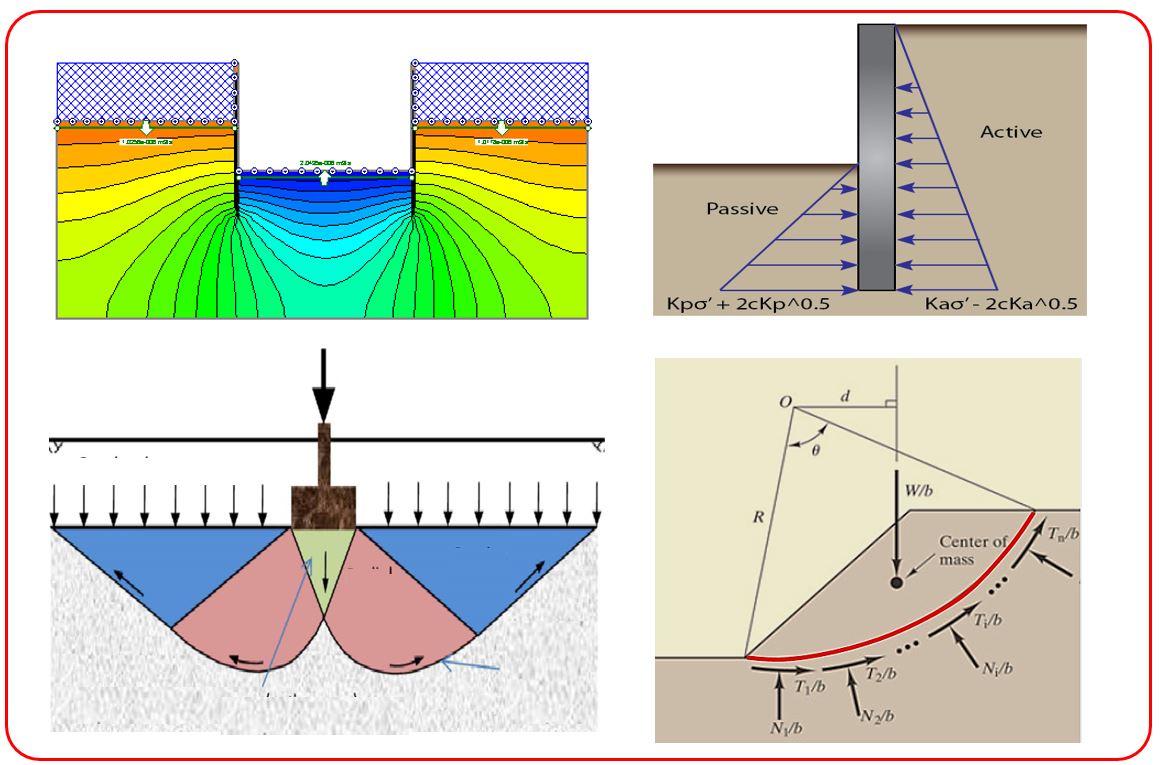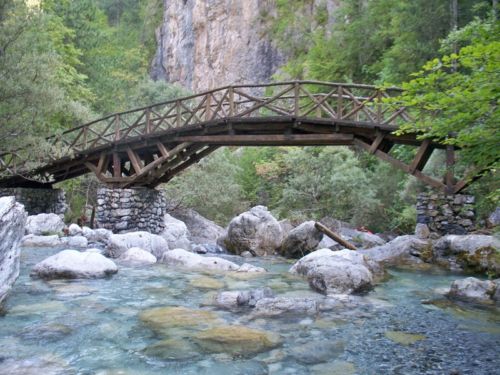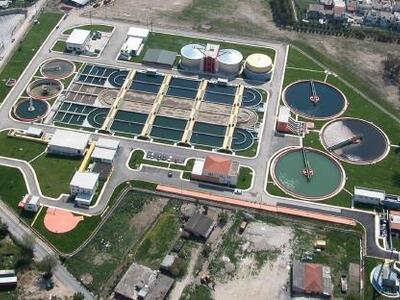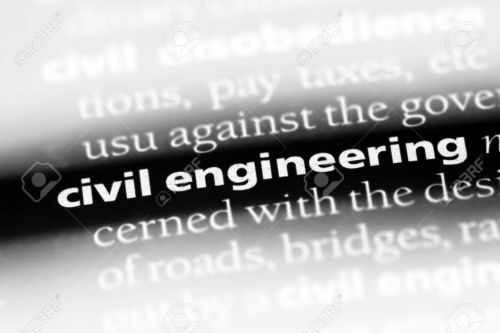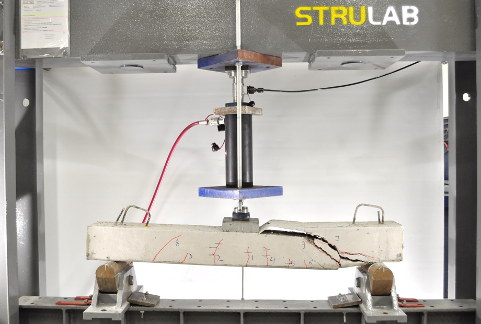| 1. Groundwater flow
Flow nets, anisotropic soils, discharge, pore water pressure, seepage forces. 2. Bearing capacity Theories and computation methods, factors influencing bearing capacity. 3. Earth pressures Active and passive conditions, methods to compute and factors influencing earth pressures. 4. Slope stability Methods of analysis, homogeneous and layered soils, effect of groundwater flow, the friction circle method, methods of slices., compaction energy, methods for soil compaction |
SOIL MECHANICS II
| SEMESTER | 6th |
|---|---|
| eclass | https://eclass.upatras.gr/courses/CIV1656/ |
| Details | http://www.civil.upatras.gr/index.php/odhgos/ |
| Instructor | |
| LANGUAGE OF INSTRUCTION and EXAMINATIONS | Greek. Teaching may be however performed in English in case foreign students attend the course. |
| Credits ECTS | 5 |
| Teaching Hours | 4 |
| Erasmus+ | No |
| Code |
|
At the end of this course the students should be able to: 1. Know the use of flow nets to solve ground-water flow problems. 2. Know the methods for computing soil bearing capacity. 3. Know the basic theories for computing earth pressures on retaining structures. 4. Know the most common methods for slope stability analysis.
At the end of the course the student will have further developed the following skills/competences: 1. Ability to draw a flow net and compute discharge, pore water pressure and seepage forces. 2. Ability to compute soil bearing capacity. 3. Ability to determine active and passive earth pressures on retaining structures.
|

